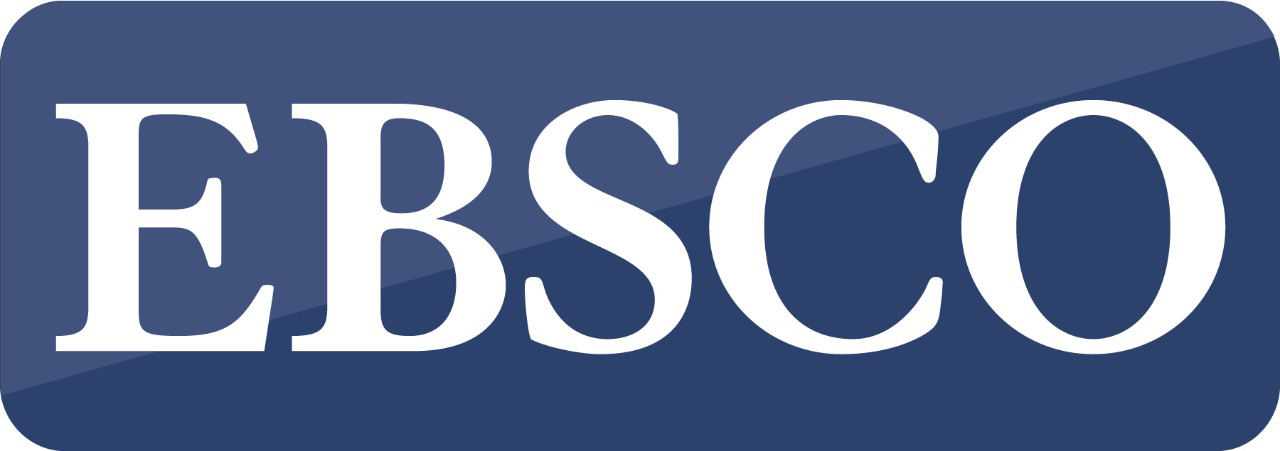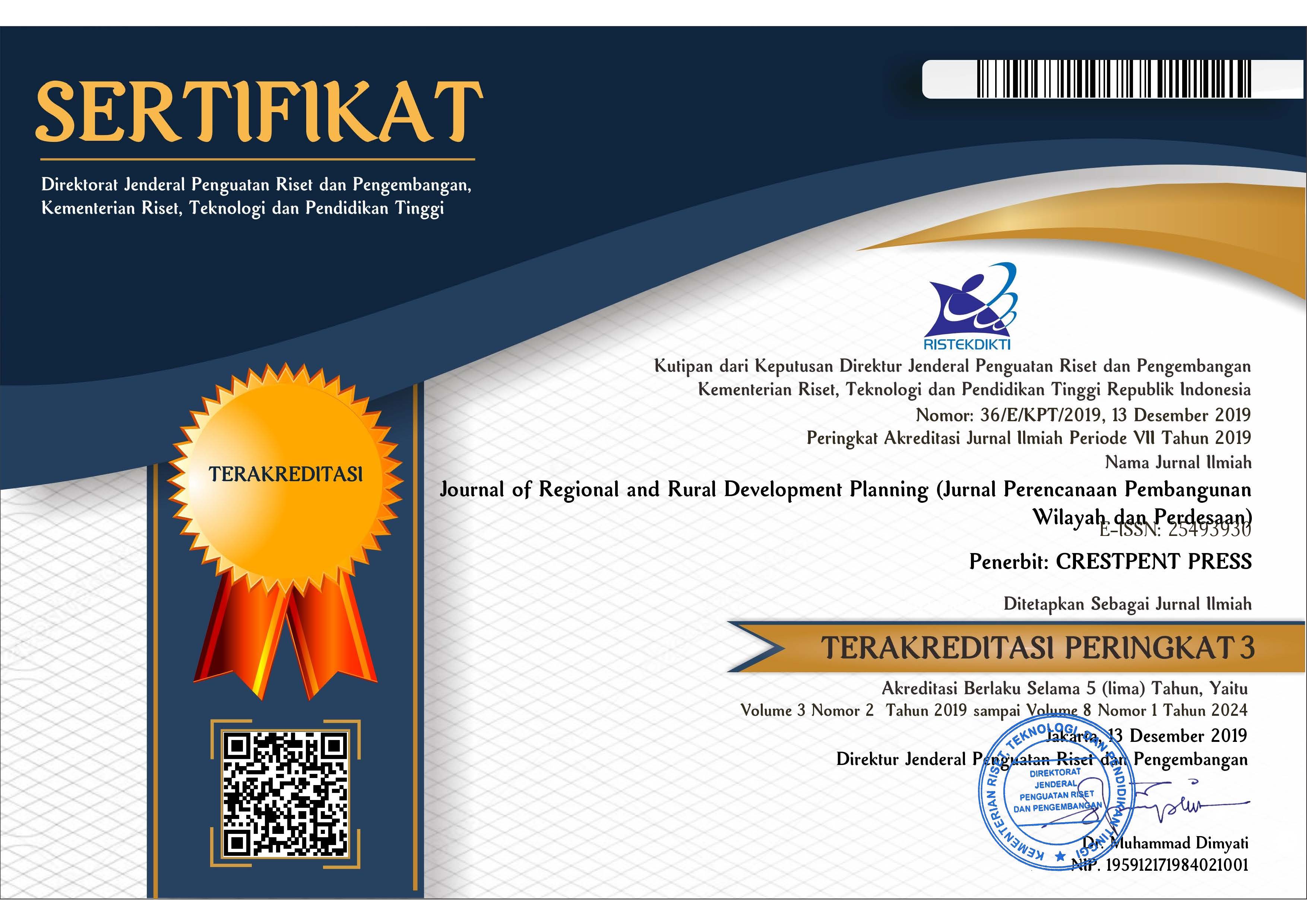Optimalisasi Pengembangan Desa Wisata Lerep Kabupaten Semarang Berbasis Kearifan Lokal
DOI:
https://doi.org/10.29244/jp2wd.2023.7.1.107-117Keywords:
community participation, local wisdom, sustainability, tourism villageAbstract
Since 2015, Lerep has been appointed as a tourism village based on the Regent's Decree. The potential of local wisdom becomes the main attraction of the Lerep Tourism Village for developing tourism attraction. This article aims to provide an overview of the development of the Lerep Tourism Village by optimizing the existing potential and integration of community participation. The method used in this study is a descriptive qualitative approach by conducting in-depth interviews to key stakeholders. Data collection was conducted from April to July 2022 and interviews were conducted in June 2022. The number of respondents was 7 people who were representatives of tourism actors in the Lerep Tourism Village. The results of the analysis show that the Lerep Tourism Village has managed 7 types of tourist attractions which include natural tourism, educational tourism, water-based tourism, artificial tourism, culinary tourism, cultural tourism and homestays. This management involves active community participation by prioritizing the concept of local wisdom in 3 main aspects. First, there is an effort to highlight the unique natural potential that specifically exists in the Lerep Tourism Village in the form of natural beauty and the diversity of agricultural, fishery and plantation products. Second, encourage the participation of local communities via specific tourist attractions. Each community group is given the right to manage tourist attractions according to their respective expertise, for example in the fields of arts, culinary and tourism accommodation management. Third, the availability of a kinship-informal institutional model. This creates more effective communication between the key stakeholders of the Lerep Tourism Village.
References
Arintoko, A., Ahmad, A. A., Gunawan, D. S., & Supadi, S. (2020). Community-based tourism village development strategies: A case of Borobudur tourism village area, Indonesia. Geojournal of Tourism and Geosites, 29(2), 398–413. https://doi.org/10.30892/gtg.29202-477
Cahyono, A. E., & Putra, Y. B. T. (2017). Analisis Potensi Ekonomi Pengembangan Agrowisata Berbasis Kearifan Lokal di Desa Wisata Sumbermujur Kabupaten Lumajang. Eco-Socio: Jurnal Ilmu Dan Pendidikan Ekonomi, 1(1), 14–22. http://194.59.165.171/index.php/ECS/article/view/5%0Ahttp://jurnal.stkippgri-bkl.ac.id/index.php/ECS/article/view/326
Dolnicar, S., & Ring, A. (2014). Tourism marketing research: Past, present and future. Annals of Tourism Research, 47, 31–47. https://doi.org/doi:https://doi.org/10.1016/j.annals.2014.03.008
Ekosafitri, K. H., Rustiadi, E., & Yulianda, F. (2017). Pengembangan Wilayah Pesisir Pantai Utara Jawa Tengah Berdasarkan Infrastruktur Daerah : Studi Kasus Kabupaten Jepara. 1(2), 145–157.
Hasanah, R. (2019). Kearifan Lokal Sebagai Daya Tarik Wisata Budaya Di Desa Sade Kabupaten Lombok Tengah. DESKOVI : Art and Design Journal, 2(1), 45. https://doi.org/10.51804/deskovi.v2i1.409
Hasegawa, T. S. (2017). Nepa Beach Tourism Area Development Instruction Based on Visitors ’ Preference. Program Studi Perencanaan Wilayah dan Kota.Institut Teknologi Sepuluh Nopember.
Komariah, N., Saepudin, E., & Yusup, P. M. (2018). Pengembangan Desa Wisata Berbasis Kearifan Lokal. Jurnal Pariwisata Pesona, 3(2), 158–174. https://doi.org/10.26905/jpp.v3i2.2340
Lanur, V. S. C., & Martini, E. (2015). Pengembangan Desa Wisata Wae Rebo Berdasarkan Kearifan Lokal. Jurnal Planesa, 6(2), 60–67. https://media.neliti.com/media/publications/213040-pengembangan-desa-wisata-wae-rebo-berdas.pdf
Manteiro, M. C. B. (2016). Model Pengembangan Desa Wisata Di Kabupaten Rote Ndao Nusa Tenggara Timur. Bisman Jurnal Bisnis Dan Manajemen, 2(2), 93–101.
Maryani, P. D. (2021). Dampak Pengembangan Desa Wisata Wukirsari Terhadap Peningkatan Ekonomi Masyarakat Lokal Tahun 2017-2018. Jurnal Pariwisata Terapan, 5(2), 115. https://doi.org/10.22146/jpt.58376
Nugroho, M. S. (2019). Identifikasi Komponen Pendukung Daya Tarik Wisata Loang Balooq Sebagai Wisata Pesisir di Kota Mataram. Media Bina Ilmiah, 13(7), 1619–1626.
Pangarso, A., & Anggara, D. B. (2021). Strategi Adaptasi Warga Desa Wisata Lerep Di Masa Pandemi Melalui Keberlanjutan Penghidupan. Media Informasi Penelitian Kabupaten Semarang, 4(1), 14–25. https://doi.org/10.55606/sinov.v4i1.58
Pickel-Chevalier, S., Bendesa, I. K. G., & Darma Putra, I. N. (2021). The integrated touristic villages: an Indonesian model of sustainable tourism? Tourism Geographies, 23(3), 623–647. https://doi.org/10.1080/14616688.2019.1600006
Popovic, G., Stanujkic, D., & Karabasevic, D. (2019). A framework for the evaluation of hotel property development projects. International Journal of Strategic Property Management, 23(2), 96–107. https://doi.org/10.3846/ijspm.2019.7435
Tsiotsou, R. H., & Goldsmith, R. E. (2012). Strategic Marketing in Tourism Services Bingley.

















.png)




